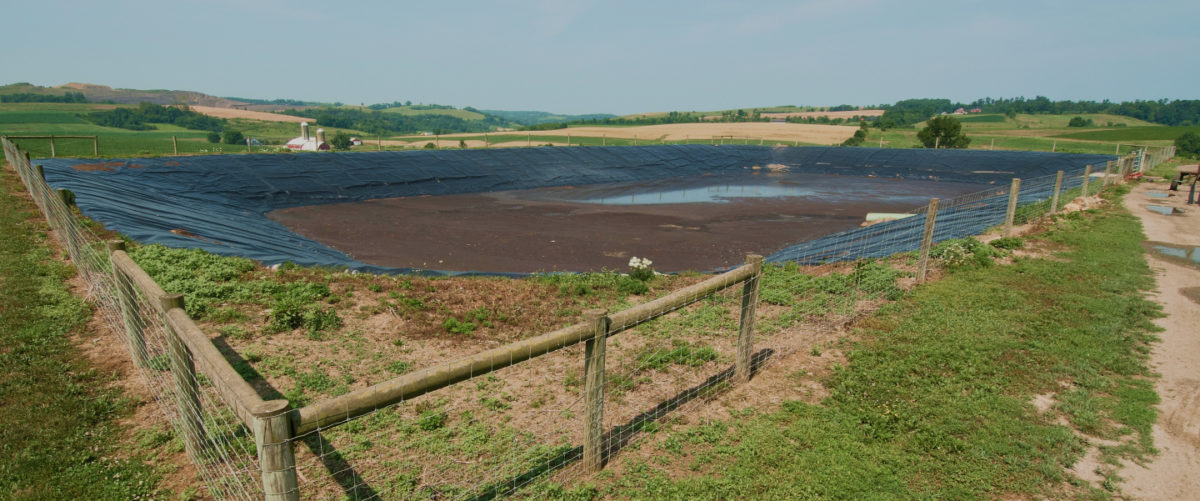We Just Scored A Big Win Against Factory Farm Water Pollution
Published Oct 6, 2021

EPA loopholes have shielded factory farm pollution from the public — until now.
Food & Water Watch just won a major court victory against factory farm pollution. The federal Ninth Circuit Court of Appeals has ruled that the Environmental Protection Agency’s statewide Clean Water Act permit for Idaho CAFOs (concentrated animal feeding operations, or factory farms) illegally let these CAFOs off the hook for water pollution monitoring.
EPA Loopholes Have Shielded Factory Farm Pollution From the Public
The federal Clean Water Act is supposed to protect our waterways, keeping them safe for recreation and wildlife. It does this is by requiring polluters — including CAFOs — to follow strict discharge permits that limit pollution.
These permits don’t work on an honor system; permitted facilities must show their work by testing their discharges. They also need to create publicly available monitoring reports that demonstrate whether they’re meeting permit limits.
If a facility violates its permit, citizens and regulators can use the self-reported monitoring information to enforce the law. Monitoring is crucial to holding polluters accountable and cleaning up our rivers and streams.
Despite this, the EPA and states have issued permits to factory farms that leave monitoring out entirely. These permits assume that if a factory farm adopts certain practices to manage its waste, it will meet permit requirements.
That approach wouldn’t pass the laugh test with wastewater treatment plants and factories. We’ve known for years that it’s just as illegal for CAFOs, which discharge pharmaceuticals, pathogens, heavy metals, and nutrients that cause deadly algal blooms into our waterways.
Striking a Blow Against EPA’s Special Treatment for the Factory Farm Industry
When the EPA issued a permit for Idaho CAFOs that again left out monitoring, we joined Snake River Waterkeeper and Earthrise Law Center to take the agency to court. The Idaho permit provided a unique and strategic opportunity to bring our case in federal court. That’s because states — not the EPA — issue most Clean Water Act permits, and challenges go to the less favorable state courts.
Our strategy paid off. The Ninth Circuit judges struck down the EPA’s permit as unlawful. They recognized that Idaho CAFOs are a significant source of water pollution, as farmers commonly apply CAFO waste to fields and CAFO manure lagoons may leak waste into waterways.
The Ninth Circuit also agreed that the Idaho permit didn’t contain the monitoring that we need. Such monitoring would alert us if a factory farm isn’t complying with the Clean Water Act or if it’s illegally polluting.
This Win Against Factory Farm Pollution Doesn’t Stop in Idaho
This ruling means that polluting factory farms in Idaho must now comprehensively monitor and report their waste discharges and water pollution for the first time.
But even more importantly, the Ninth Circuit set a precedent that applies to everywhere factory farm permits take the same illegal approach as Idaho’s. And that’s essentially nationwide.
We will work across the country to ensure that this win impacts farm farm regulations going forward.
Factory farms are a large and growing source of water pollution in Idaho and across the country. But without pollution monitoring, they have polluted at will and hidden this pollution from citizens and regulators.
This victory is a critical first step toward holding factory farms accountable for illegal pollution. It also stands to make accessible the information we need to not only enforce the law and advocate for stronger pollution regulation, but also to make the case to ban factory farms altogether.
Finally, the decision struck a major blow against the EPA’s practice of granting illegal exceptions and special treatment to the factory farm industry. Moving forward, we’ll work to make sure it’s the first of many.
Smart legal work like this is a part of our strategy to save our planet. Will you chip in?
Enjoyed this article?
Sign up for updates.
TO TOP


